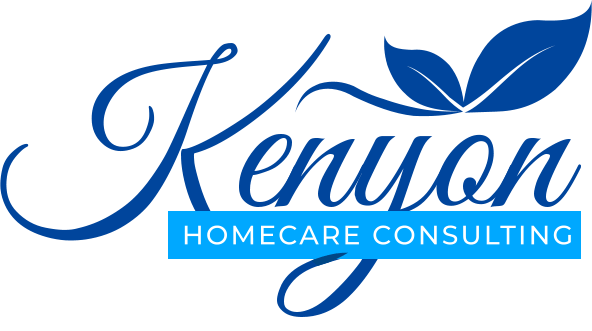Unlocking the Future of Home Health: Prioritizing Chronic Disease Knowledge
The home health environment is rapidly becoming the epicenter of chronic disease management. While healthcare systems prioritize keeping patients out of costly hospitals and effectively managing long-term conditions, the burden and opportunity falls directly upon field staff. For nurses, physical therapists, and aides visiting patients in their homes, a fundamental understanding of chronic illnesses is no longer optional; it is the single most critical factor determining patient outcomes, quality of life, and the prevention of costly hospital readmissions.
The Complexities of the Home Setting
In a hospital or clinical setting, medical resources and immediate supervision are constantly available. In contrast, the home environment presents unique challenges. Patients with conditions like congestive heart failure (CHF), chronic obstructive pulmonary disease (COPD), or diabetes mellitus often live alone, lack easy access to transportation, and struggle with medication adherence or complex dietary restrictions.
A home health professional acts as a lifeline, bridging the gap between clinical orders and real-world execution. This role demands more than just performing tasks; it requires diagnostic vigilance. Field staff must be able to recognize subtle, pre-crisis changes that indicate an impending disease exacerbation. This is a vital skill that relies entirely on advanced understanding each chronic disease's pathophysiology.
Knowledge as a Tool for Early Detection
For many chronic conditions, early intervention can prevent a full-blown emergency. This is where specialized chronic disease knowledge pays dividends:
- Congestive Heart Failure (CHF): Staff must understand that a sudden weight gain of 2 to 3 pounds overnight is not just fluid retention; it is a critical sign of worsening heart failure that requires immediate communication with a supervising physician. Knowledge of sodium restrictions and fluid limits is essential for daily teaching and monitoring.
- Chronic Obstructive Pulmonary Disease (COPD): Understanding the difference between baseline shortness of breath and acute respiratory distress is paramount. Field staff must monitor sputum color, frequency of nebulizer use, and changes in mental status (which can signal hypoxia) to prevent an urgent trip to the emergency room.
- Diabetes Mellitus (DM): Beyond administering insulin, staff must recognize the early, non-specific symptoms of both hypoglycemia and hyperglycemia. They must be equipped to teach basic foot care, identify a non-healing ulcer, and understand how concurrent illness impacts blood sugar control.
Without this specialized knowledge, staff risk missing critical warning signs as typical day-to-day fluctuations. This results in delayed care and poor patient outcomes.
Elevating Patient Education and Empowerment
A significant goal of home health is empowering the patient and their family to manage the condition independently. Field staff who truly understand chronic diseases are far better educators. They can:
- Customize Teaching: Instead of relying on generic handouts, they can explain why a medication needs to be taken at a specific time or how a certain food affects blood pressure. This links the instruction directly to the patient's individual body and symptoms.
- Build Confidence: By explaining disease progression in an understandable way, they reduce patient anxiety and foster a sense of control. Empowering the patient in the treatment regimen increases the change of improving adherence to complex regimens.
- Act as an Interpreter: They translate complex medical jargon from doctors and specialists into actionable, practical steps the patient can follow in their living room.
The Economic and Quality Imperative
From a systems perspective, chronic disease management is directly tied to value-based care models. Rehospitalization is costly, disruptive, and often avoidable. Agencies and staff with high chronic disease competency are more likely to achieve low readmission rates.
This expertise transforms the field staff's role from providing basic custodial care to delivering high-level, preventative health management. They become the primary sensor network for the medical team, ensuring that a minor fluctuation is caught before it spirals into an acute crisis. Investing in the continuous education of home health staff on pathophysiology, common exacerbations, and management strategies for the most prevalent chronic diseases is thus a critical business decision, directly impacting clinical quality, reputation, and financial viability.
The importance of home health field staff understanding chronic diseases cannot be overstated. They are the essential link in the chronic care chain, operating in the most challenging and least supervised setting. Agencies must treat chronic disease competency as a foundational requirement which ensures continuous professional development and training. By equipping field staff with this expert knowledge, home health care transitions from merely providing assistance to delivering genuine, life-saving, and preventative health partnership.
Kenyon HomeCare Consulting recognizes the importance of all field staff (aides, nurses therapists and social workers) in caring for individuals with chronic diseases. For that reason, Kenyon HomeCare Consulting has created 8-hour Chronic Disease Education courses. For more information go to Kenyon's Chronic Disease University for the list of courses. If you need additional assistance, call 206-721-5091.
Results Based Consulting
Did you find value in this blog post? Imagine what we can do for your home care or hospice agency. Fill out the form below to see how we're leading the industry with innovation, affordability, and experience.
Contact Us










